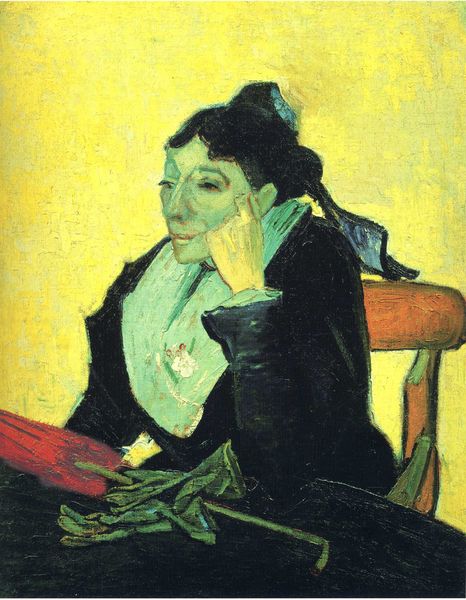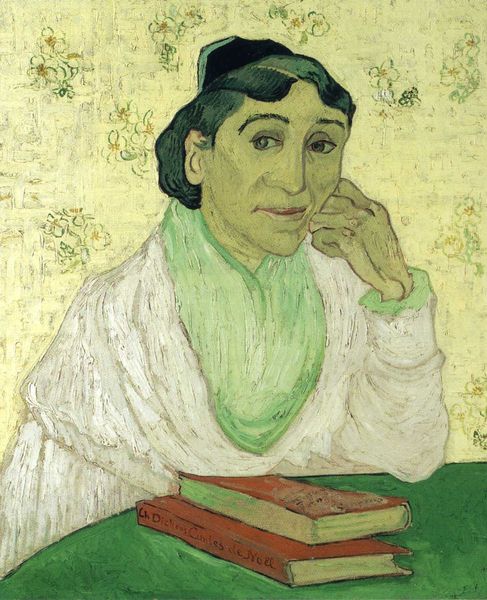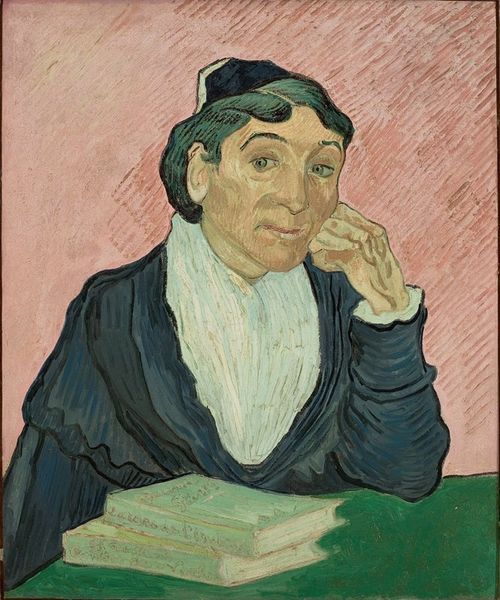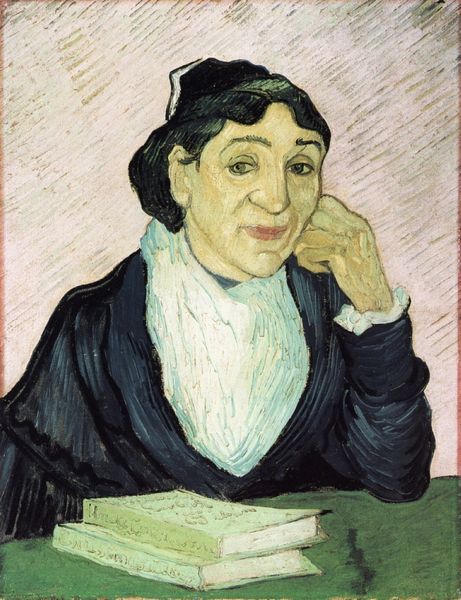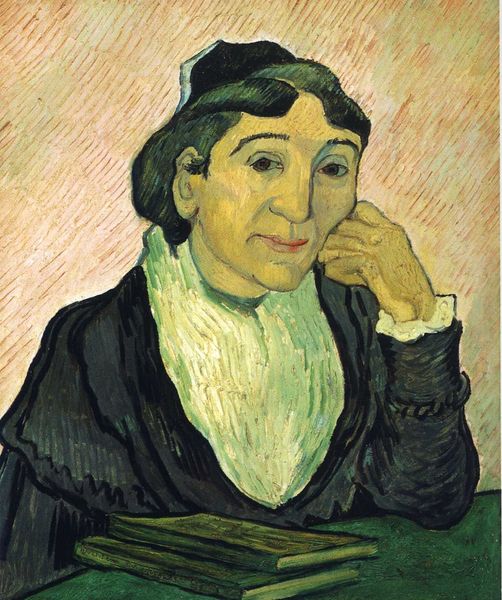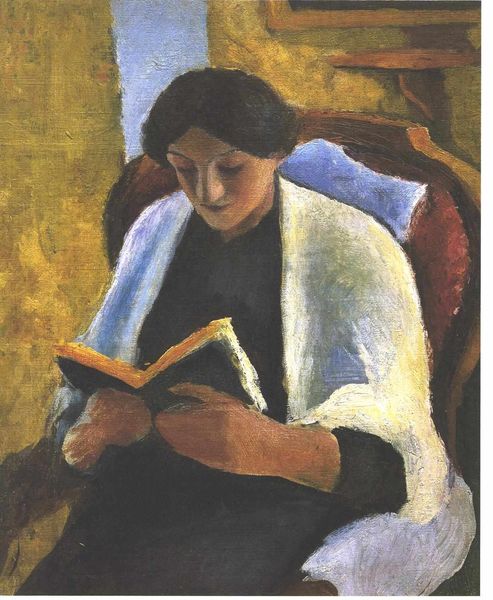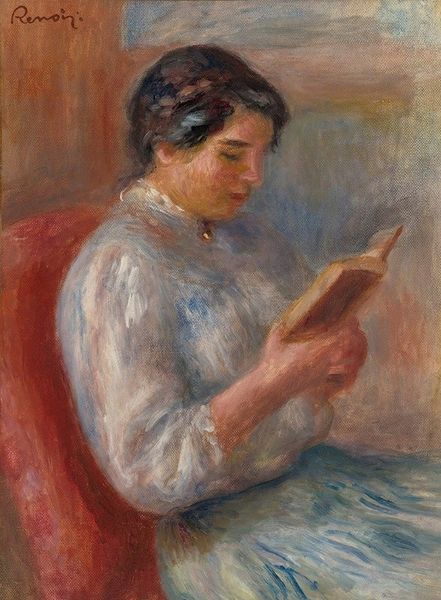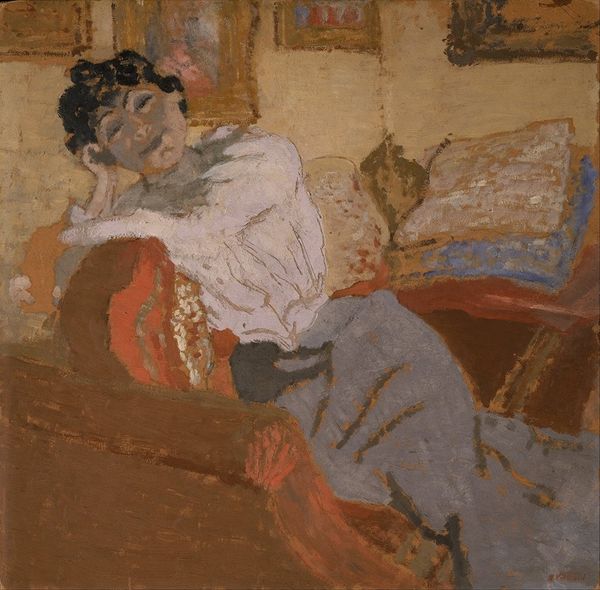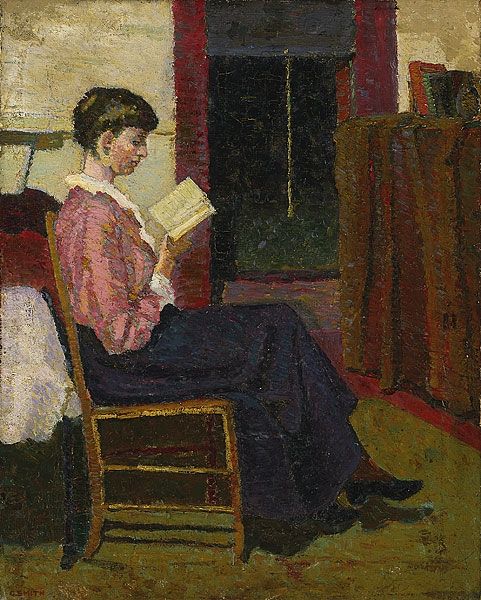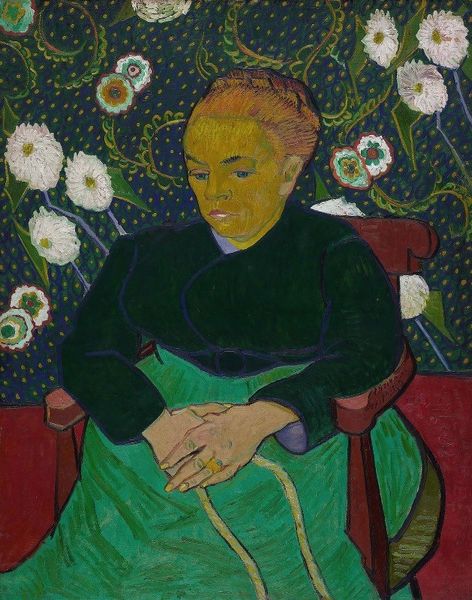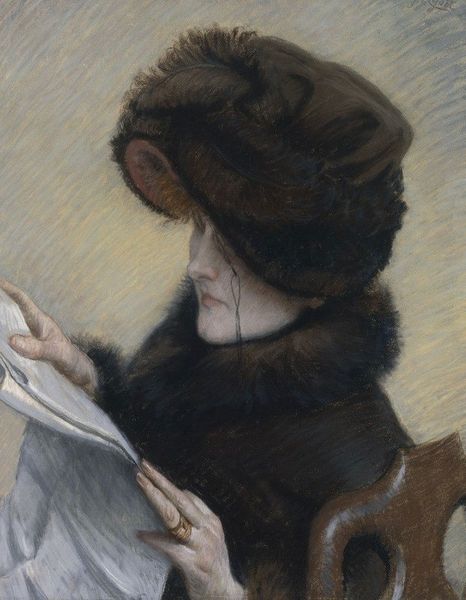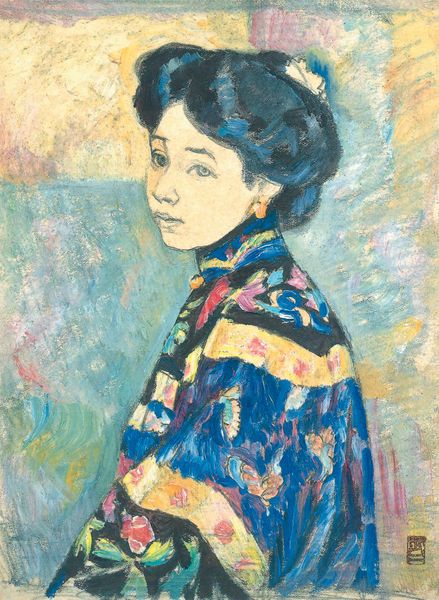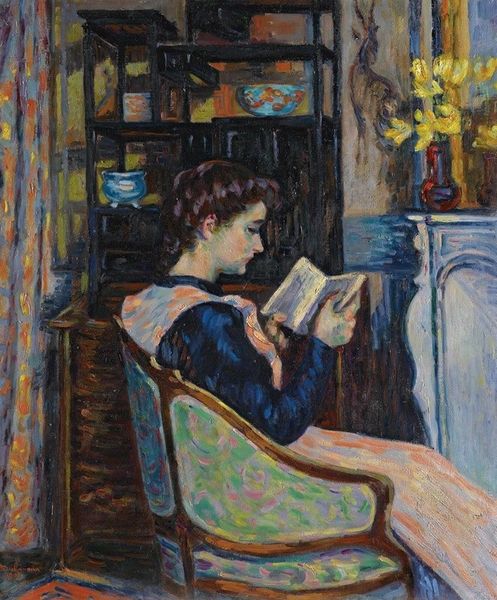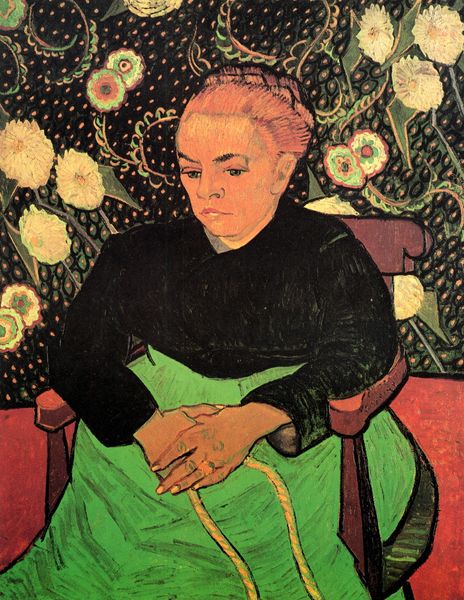
oil-paint
#
portrait
#
figurative
#
impressionism
#
oil-paint
#
oil painting
#
naive art
#
genre-painting
#
post-impressionism
#
portrait art
Copyright: Public Domain: Artvee
Curator: Here we see Vincent van Gogh's portrait of Madame Joseph-Michel Ginoux, painted between 1888 and 1889, also known as "L’Arlésienne." Editor: There's an arresting quietude in this painting, isn’t there? The yellow background hums softly, amplifying the somber tones of her dark clothing. Her thoughtful posture and the stack of books evoke a pensive domesticity. Curator: Indeed. It’s important to note that Madame Ginoux ran the Café de la Gare in Arles, where Van Gogh lived for a time. The painting tells us as much about Van Gogh's artistic development as it does about its subject. The sittings for this work occurred at a significant moment in his life. Editor: From a material perspective, look at the texture of the oil paint; the visible brushstrokes lend a tactile quality to the scene, animating the solid blocks of color that construct form and volume in the subject's form. It gives her solidity, almost as if she has sprung from the earth and become rooted at this very table. Curator: The production of this work speaks to the culture of portraiture at the time, with artists relying on specific poses and settings to convey information about their sitters. In this case, the books reference the sitter's perceived intelligence and cultural interests, which contributes to a wider discussion about the artistic representation of women. Editor: Absolutely. Consider how the intense yellow flattens the depth, pushing our attention toward the material reality of the paint itself. The very materiality acts to deconstruct academic illusions and exposes art as a form of making. Curator: That tension, between the subject as a real person and the image as an artistic construction, feels very modern and deliberately considered by Van Gogh as he negotiates representation. The history in it resonates still. Editor: A striking commentary then, on both domestic space, female identity, and artistic materiality that asks as many questions as it seems to resolve.
Comments
No comments
Be the first to comment and join the conversation on the ultimate creative platform.
